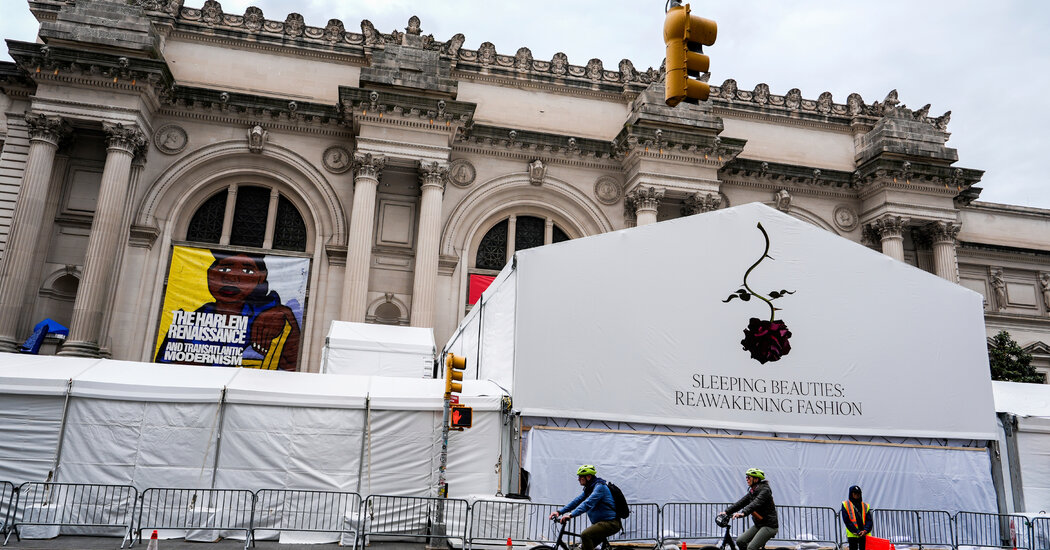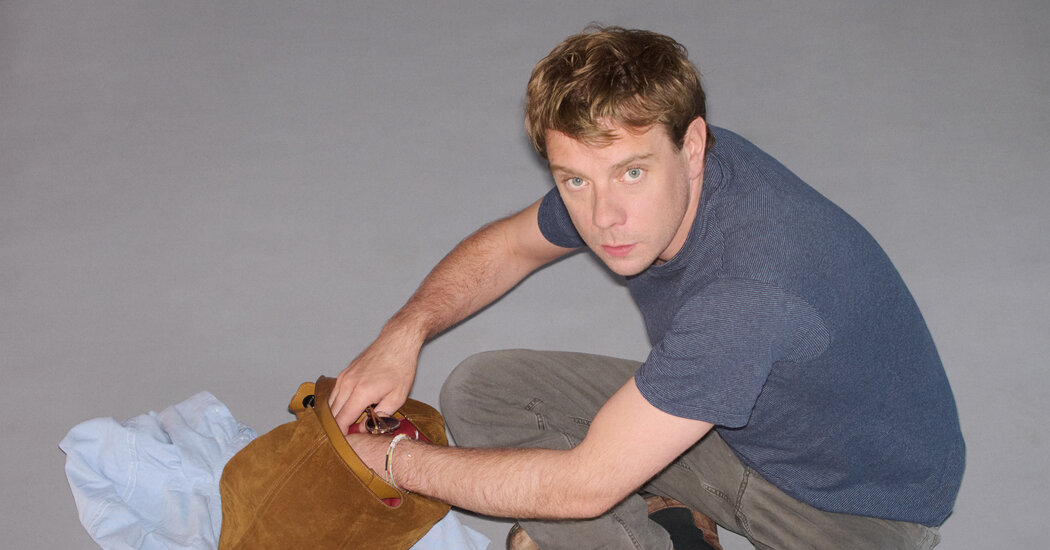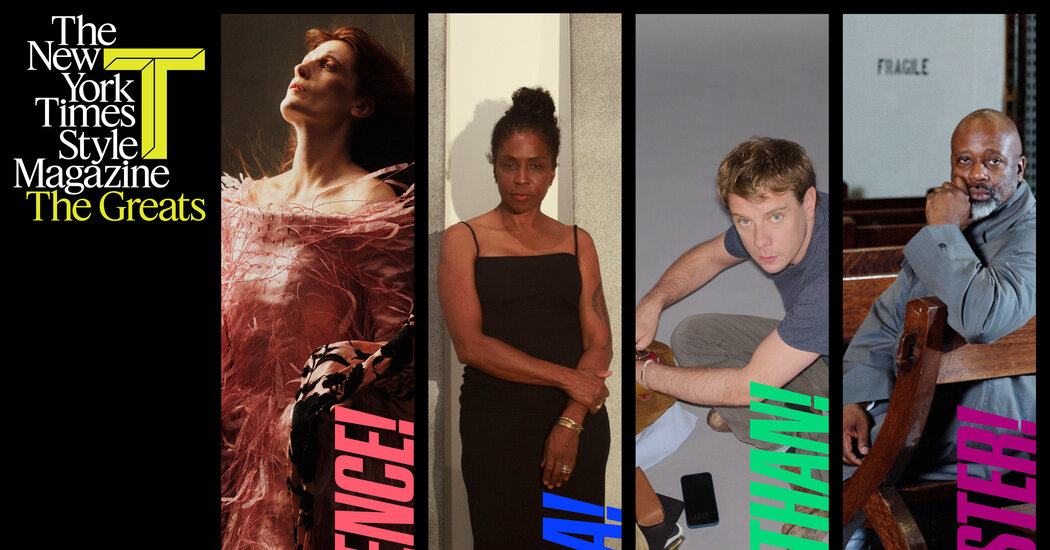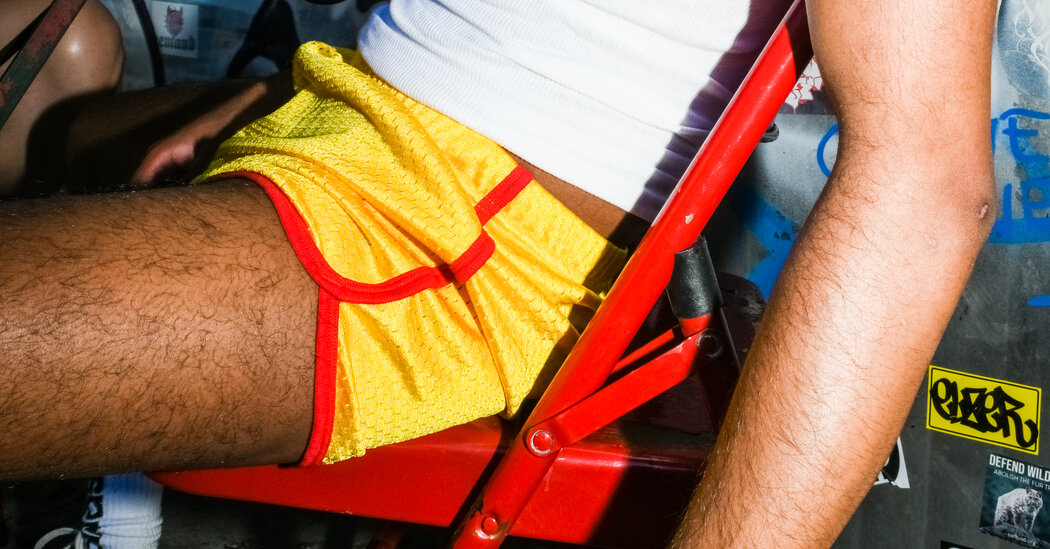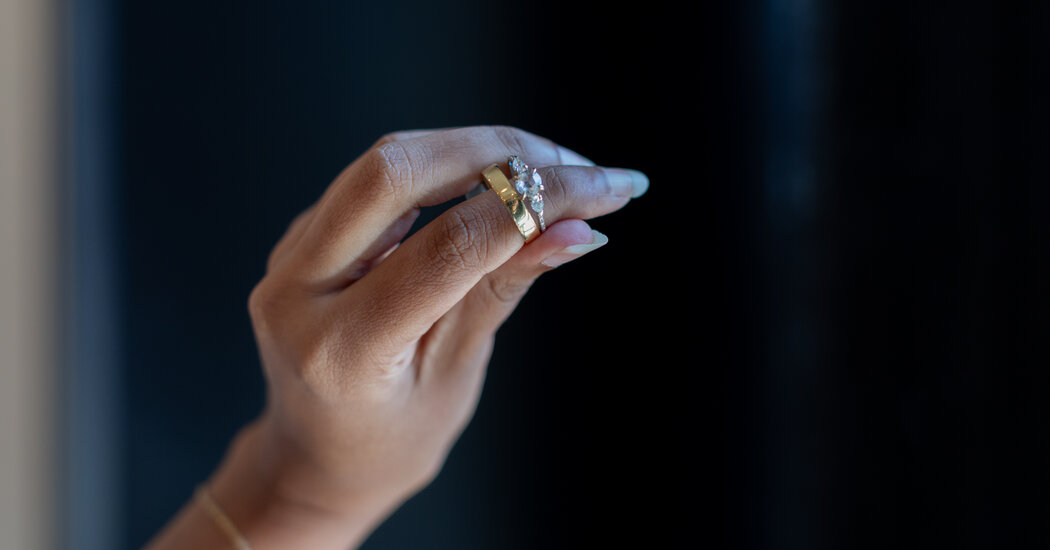Less than a day before celebrities were set to arrive at the Metropolitan Museum of Art for the Met Gala, the union representing employees of Vogue and other Condé Nast publications indicated that its members were ready to walk off the job on Monday over contract negotiations, potentially snarling the biggest night of the year for the magazine and its editor in chief, Anna Wintour.
In a vocal in-person and social media campaign leading up to the event, which is co-hosted by Ms. Wintour and costs $75,000 per person, the Condé Nast Union pledged to continue to take action as needed to bring the publisher to the bargaining table. In a post on X, the union warned on Saturday night that management could “meet us at the table or meet us at the Met on Monday.”
The threat of a protest at what is sometimes called “fashion’s biggest night out” comes after over a year of bargaining for union members to create their first contract. In addition to establishing just cause as the basis for firing employees, the organizers are hoping to avoid layoffs proposed in November that they said would affect 17 percent of union members, or nearly 100 employees.
In addition to Vogue staff members, the Condé Nast Union represents employees from titles including Vanity Fair, GQ and Architectural Digest. (The New Yorker, Pitchfork and Ars Technica maintain their own unions and contracts.)
In January, the Condé Nast Union held a one-day work stoppage. Now, many of the union’s approximately 540 members have turned up the pressure, which could potentially culminate in picketing at the Met Gala. On Wednesday, union members participated in a May Day rally at Condé Nast’s headquarters at One World Trade Center in Manhattan. Later that week, staff members also covered Ms. Wintour’s neighborhood in fliers reading “Anna Wears Prada, Workers Get Nada,” taping them to lampposts and slipping them under windshield wipers.
“It’s such an electric energy,” Mark Alan Burger, a unit chair for the Condé Nast Union, said on Thursday. “There’s nothing quite like getting together and hearing the echoes down this West Village street and seeing people turn around like, What is going on?”
Mr. Burger, who works as a social media manager at Vanity Fair, declined to reveal more about potential demonstrations at the Met Gala, including whether the planned action might include a picket line that celebrity guests would have to cross to enter the event. As of Sunday evening, no contract resolution had been reached.
“We’re keeping our options open,” Mr. Burger said, “and we’re hoping ideally that we can get a contract together and that everyone can attend and watch and work in that gala as they normally would.”
Jen Sheehan, a spokeswoman for the NewsGuild of New York, the umbrella union representing Condé Nast, said in a statement on Sunday evening that over the past week the two sides had been engaged in “marathon bargaining,” which continued into Sunday. “We remain hopeful that we will reach the finish line and have a tentative agreement,” Ms. Sheehan wrote, “but we are also moving ahead with planning for ‘whatever it takes’ Monday.”
Representatives for Condé Nast declined to comment for this article beyond sharing messages that the company had recently sent to employees. “This week has been very productive with the union as we exchanged proposals several times each day,” the company wrote on Saturday. “Many of the contract sections now have tentative agreements. If needed, we will continue working with the union this evening and throughout the weekend.”
Mr. Burger said that he hoped the creation of a contract could serve as a re-education of sorts for Condé employees, reminding them that if they were going to work extra hours for something like the Met Gala or the Oscar parties, they deserved additional compensation.
“Everyone at Condé Nast really, really loves their job — it’s a workplace unlike any other,” he said. “It’s a huge achievement to be involved in conversations that are shaping and influencing culture.”
That said, Mr. Burger and his union cohorts said they didn’t think that employees were receiving the “dignity” or “basic respect” they deserve, arguing that the situation had reached a boiling point. “Obviously, ‘The Devil Wears Prada’ is a huge cultural touchstone for us, especially,” he added. “The idea that 100 girls would kill for this job — those days are over.”



